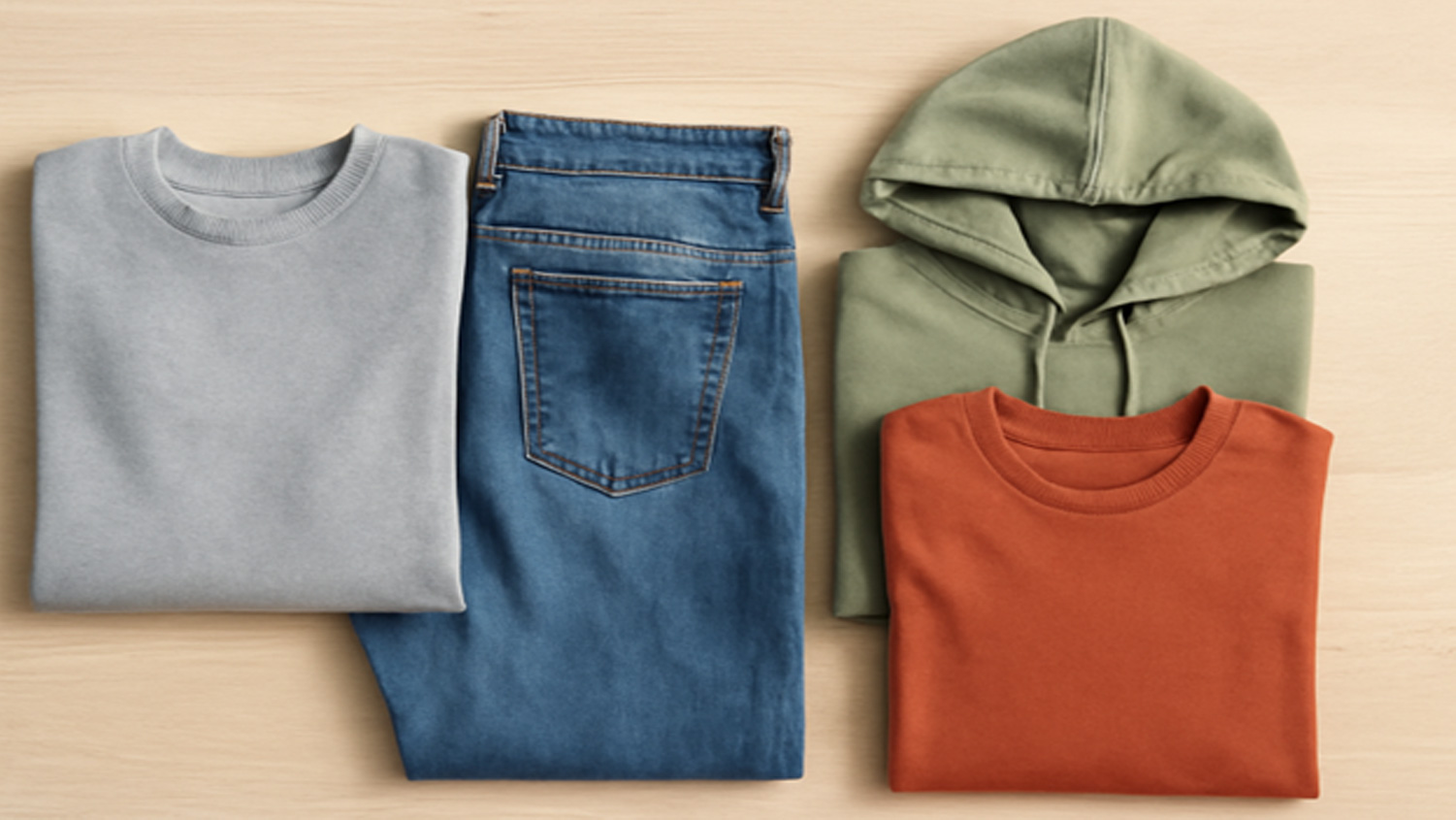
What is Wholesale Clothing?
Wholesale clothing refers to buying and selling apparel in bulk to retailers, distributors, or other B2B entities that sell directly to consumers. Unlike a direct-to-consumer (DTC) model, where the brand sells products directly to customers through online stores or physical locations, wholesale clothing focuses on building partnerships with other businesses. These businesses, in turn, sell the clothing to end consumers.
When a brand enters the wholesale market, it generally offers its products at a discounted price in bulk, allowing retailers to mark them up for resale. This model can be ideal for new brands because it minimizes the need for high upfront costs associated with building a direct-to-consumer sales model. Wholesale clothing is a way to scale quickly without needing to build an expensive marketing or retail infrastructure from scratch.
Why Wholesale Clothing Is a Smart Starting Point for Your Brand
1. Increased Brand Exposure and Awareness
For new clothing brands, brand awareness is critical, and wholesale clothing provides an effective platform to gain visibility. By working with retailers, distributors, or e-commerce platforms, your brand can reach a much broader audience than it could on its own.:
Retailers often have established customer bases, and by partnering with them, your brand can be exposed to these pre-existing audiences. This exposure is especially important for a new clothing brand that may not have the marketing budget to launch an extensive advertising campaign or build a significant online presence. Wholesale gives you a direct route into stores, pop-up shops, and online marketplaces that already have a loyal following.
For example, Zunisportswear, a popular Streetwear Blanks used wholesale distribution to expand its brand reach. By strategically partnering with well-established retail chains, they gained access to a wider audience while keeping their brand identity intact. The increased visibility led to enhanced brand recognition, which is vital when trying to establish a foothold in the competitive clothing industry.
2. Lower Upfront Investment
One of the most attractive aspects of wholesale clothing is that it allows new brands to enter the market with a relatively low upfront investment. Since you’re selling in bulk, the cost per item is typically lower than the cost per item sold in a direct-to-consumer model. This allows you to maintain a more manageable budget for initial production and distribution.
Additionally, wholesaling typically involves less overhead than running a physical store or managing an e-commerce platform. You don’t have to worry about building a direct sales operation, handling customer service at a large scale, or maintaining stock for individual sales. With wholesale clothing, you can focus on creating quality products while your B2B partners handle the retail side of things.
3. Focus on Production and Quality Control
In the early stages of building your clothing brand, your primary focus should be on creating high-quality products that align with your vision and audience. Wholesale clothing allows you to concentrate on designing and manufacturing without being bogged down by the complexities of marketing, logistics, and retail management. You can dedicate your energy to ensuring that your product designs stand out and are made with the highest quality materials.
Once you’ve partnered with wholesale suppliers and distributors, you can rely on them to manage the complexities of retail distribution. This division of labor allows you to streamline your operations and maintain consistency in your brand's offerings. As your brand grows, you can gradually expand into direct-to-consumer models, but wholesale is a smart starting point for those new to the industry.
4. Scalability and Flexibilit
Wholesale clothing provides brands with the scalability to grow quickly without needing to invest significant resources into infrastructure. Retailers will place bulk orders, and if demand is high, they may re-order, leading to rapid growth. This allows your brand to scale quickly as demand for your products increases.
One of the best aspects of wholesale clothing is its flexibility. You can experiment with different types of retail partners, whether they are local boutiques, larger retail chains, or international distributors. As your brand gains traction, you can make strategic moves to expand your reach, enter new markets, and adjust your product offerings based on consumer feedback.
For instance, Zunisportswear initially tapped into streetwear wholesaling in local markets before expanding to larger retailers as demand grew. This flexible approach allowed the brand to build a solid foundation and gain significant market share without the pressure of high initial investment.
5. Building Strong B2B Relationships
When you start with wholesale clothing, you're not just selling products — you're building B2B (business-to-business) relationships. These relationships are crucial to long-term success because strong partnerships can lead to repeat orders, better terms, and increased exposure.
B2B relationships in the wholesale clothing industry can help your brand tap into different retail networks and expand your distribution channels. Moreover, these relationships can give you valuable insights into market trends and customer preferences. Retail partners can provide feedback on what products are performing well, helping you refine your designs and tailor your offerings accordingly.
Brands like Zunisportswear have leveraged B2B relationships to create strong alliances with retailers that understand their brand vision. These partnerships allow the brand to grow steadily and adapt to changing market demands.
6. Low Risk in the Early Stages
For new brands, entering a new market can be risky. Wholesale clothing allows you to enter the market with lower risk compared to creating your own e-commerce store or investing in a physical retail presence. Because your products are being purchased in bulk by a retailer, they are responsible for the marketing and sales, reducing the financial pressure on your brand.
Additionally, since you’re selling products in bulk, you can often negotiate favorable terms with suppliers and manufacturers, further reducing risk. If your products don't sell as expected, you're not stuck with large amounts of unsold stock that you need to move.

